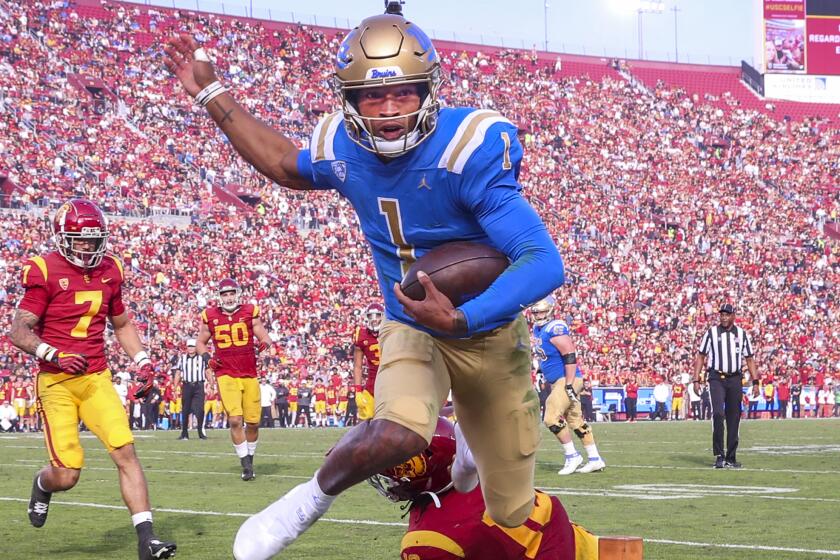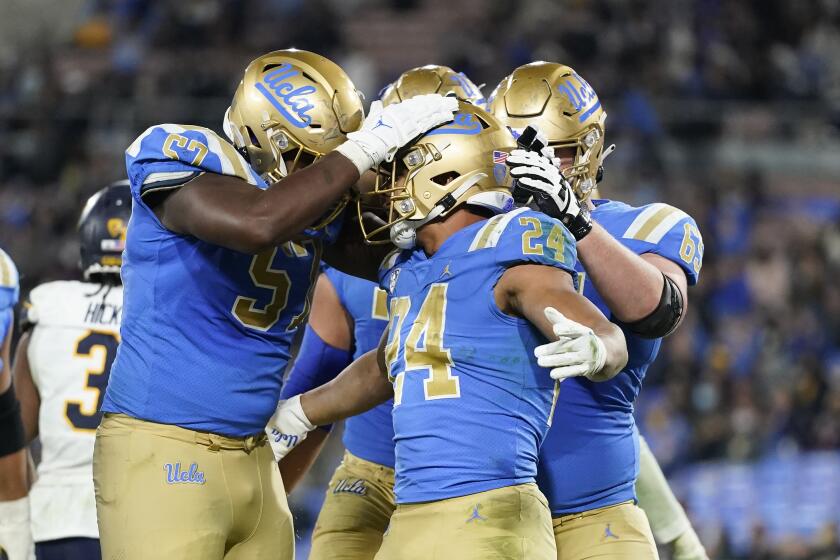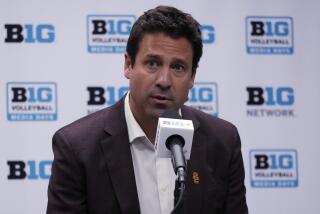Pac-12 commissioner George Kliavkoff goes on the offensive during media day comments
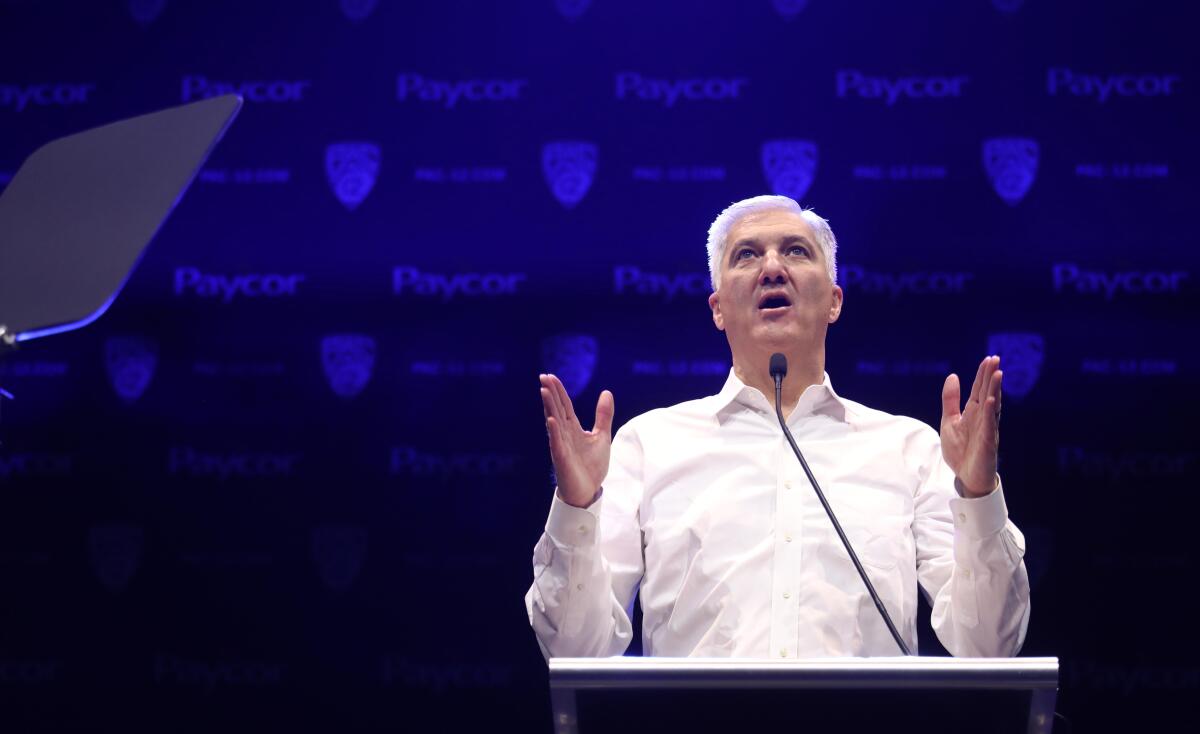
- Share via
After weeks of attempting to defend the Pac-12 from Midwestern and Eastern attacks, Pac-12 commissioner George Kliavkoff went on the offensive as he opened the conference’s media day event at the Novo on Friday.
Kliavkoff outlined the Pac-12 contingency plan after UCLA and USC’s defection, explained why he feels “bullish” on the future of the diminished conference and where he hopes college sports will head next.
Here are the top takeaways from Kliavkoff’s Pac-12 media day.
No love lost
While Kliavkoff said he hoped for the return of collegiality in college sports, the commissioner still fired a few shots at UCLA and USC for bolting. Intimating that the decision was driven by money, Kliavkoff’s best chance for self-preservation was to steer the narrative back toward athlete well-being.
“Increased revenue can help us support our student-athletes but a singular focus on money will certainly cause more harm than good,” Kliavkoff said in his prepared opening statement. “Our long-term measure for the success of college athletics cannot be how much money we consolidate into 10 or five or two conferences, but rather should be our ability to support the largest number of student-athletes while still facilitating competition between schools and conferences. We should be measuring how many lives we can change.”
USC and UCLA are leaving the Pac-12 for the Big Ten Conference in 2024, the two schools announced Thursday.
Kliavkoff also mentioned the effect of travel on athletes, a jab at the extended road trips that await UCLA and USC when they join the Big Ten.
He said he personally instructed everyone to play nice for the next two years until UCLA and USC join the Big Ten in 2024, but when asked whether reconciliation is possible, Kliavkoff didn’t appear hopeful.
“I think it’s unlikely,” he said after noting UCLA is in a “difficult” situation as regents will meet later this year to review the decision. “But if they came back, we will welcome them back.”
Going shopping?
Kliavkoff said one of the top three priorities for the Pac-12 now is “actively exploring expansion,” evaluating potential suitors based on media value, athletic strength, academic and cultural fit and geography from a recruiting and “student-athlete experience standpoint.” Did you catch the veiled shot at UCLA and USC?
He didn’t bother to hold back when talking about the Big 12, which commissioner Brett Yormark said this week is “open for business.”
“I appreciate that,” Kliavkoff said. “We haven’t decided if we’re going shopping there yet or not.”
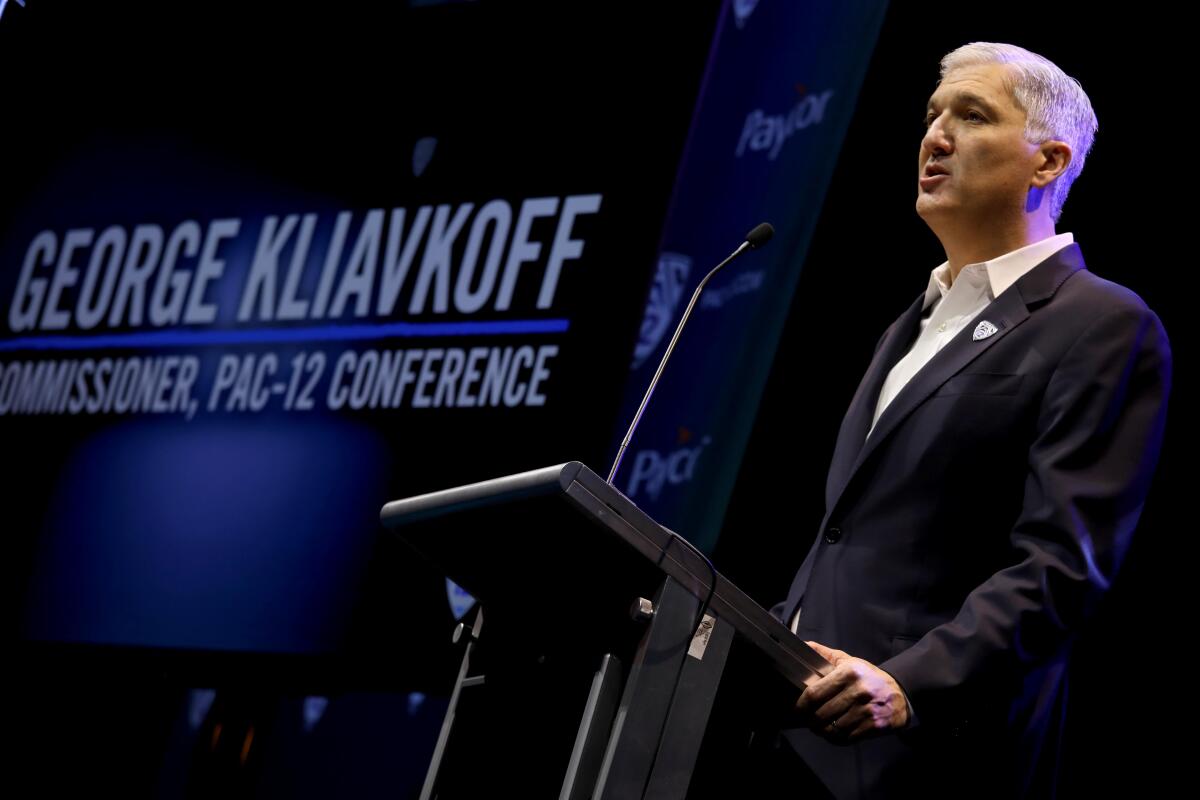
The comment drew snickers and raised eyebrows from the room of reporters. The commissioner later recognized the remark wasn’t his most collegial moment, especially after preaching trust and teamwork to ensure the future of the Pac-12.
“That remark was a reflection of the fact I’ve been spending four weeks trying to defend against grenades that have been lobbed in from every corner of the Big 12 trying to destabilize our remaining conference,” he said. “I understand why they’re doing it, when you look at the relative media value between the two conferences. I get it, I get why they’re scared, why they’re trying to destabilize it. I was just tired of that.”
Plan B
Kliavkoff said he’s “bullish” on the future of the Pac-12’s long-term growth, stability and success and has been instructed by board members to focus on enhancing the value of the conference’s media rights and initiating the media rights negotiations in addition to exploring expansion.
Enhancing the media rights includes creating made-for-TV events like the conference baseball and softball tournaments, elevating nonconference competition and adding revenue streams. Kliavkoff added that the Pac-12 is the first Power 5 conference to sell rights to its data.
UCLA and USC joining the Big Ten is opening up new recruiting opportunities for all members of the supersized conference.
“Even with the loss of our two L.A. schools, after the current cycle of media rights deals, we will be very well positioned among the Power 5 from a revenue per school standpoint,” Kliavkoff said.
Although the Pac-12 will lose UCLA and USC, it doesn’t necessarily mean the conference is done with Southern California.
“Southern California is really important to us,” he said. “I think there are different ways of approaching staying part of Southern California. We may end up playing a lot of football games in L.A.”
Kliavkoff shot down the suggestion that the remaining Pac-12 schools would merge with the Mountain West, highlighted by remaining Southern California option San Diego State. Stanford athletic director Bernard Muir said the Pac-12 has not had “any formal overture from another conference.”
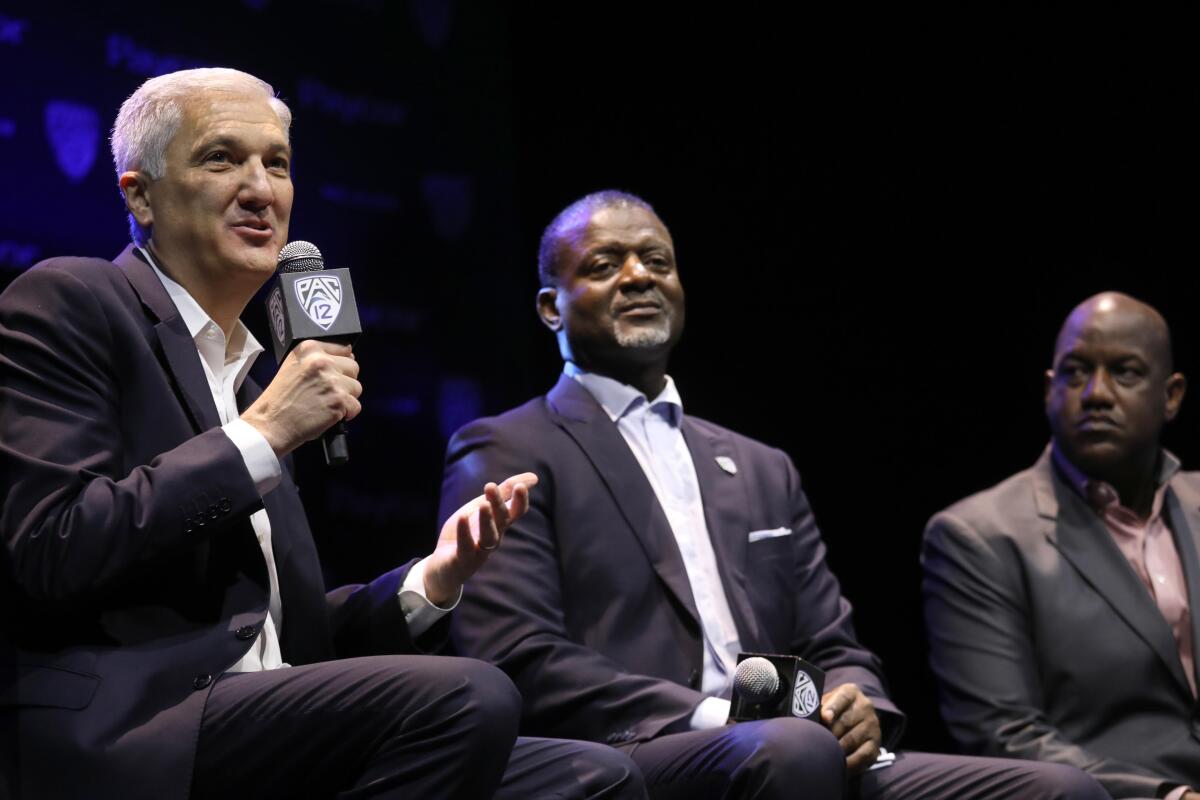
Recruiting pie
The closest Kliavkoff got to talking about football on the football media day was answering a question on recruiting, saying his impression that the impact will be “neutral” for UCLA and USC as some West Coast recruits may not want to play all their road games two and three time zones away while others may want to play in the Big Ten.
Kliavkoff ruffled feathers last year when, during his first days on the job, he recognized the importance of football and men’s basketball while appearing to downplay the significance of Olympic sports success. Yet with the conference on the defensive, he sang praises for the other sports that make up the “Conference of Champions” and highlighted what could be a recruiting boon.
“We think the 10 remaining schools are going to significantly benefit in recruiting from UCLA and USC’s decision in every sport other than football,” Kliavkoff said.
More to Read
Go beyond the scoreboard
Get the latest on L.A.'s teams in the daily Sports Report newsletter.
You may occasionally receive promotional content from the Los Angeles Times.

